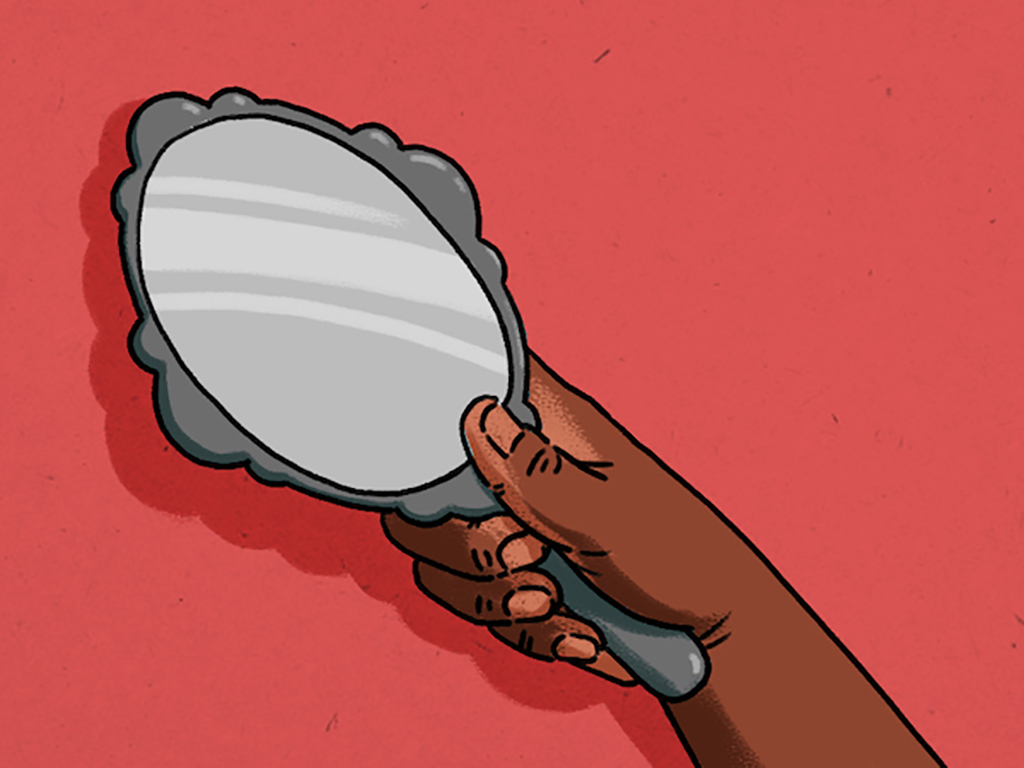[Editor’s note: Under the White Gaze originally ran as an exclusive Tyee email newsletter last fall. Starting in August and ending today, we’ve republished the full series of essays on our site, and you now can download them all as a PDF. This essay, the ninth and last, was originally titled 'Seen and Heard.']
Dear reader, this is it!
As a thank you for following along with Under the White Gaze, we’ve put together all of the essays into a handy PDF ebook, designed by the talented Alicia Carvalho. Whether you’re a journalist working on your next story, a student studying media production or just someone who cares about the news, we hope this package will keep you company as a resource.
You can download the PDF ebook here.
If this project has built up your appetite for ethnocultural representation and investigations of racial inequality, you can be sure we’re still pursuing it in our regular journalism as we always have.
I know because of my own position in society, there are many perspectives I will not have considered.
For one, being in Vancouver, it means that the racialized experiences I drew from are mostly East Asian, South Asian and Southeast Asian ones. I’m also conscious of the fact that I’m a man quoting famous feminists.
And how can we possibly talk about the white gaze in Canadian media without delving much deeper than I have on how it considers Indigenous issues?
It hasn’t even been a decade since I wrote my first ever story in journalism. But this series has been an excuse to fill myself in on a crucial education I’ve missed when it comes to portrayals and points of view.
I’m glad to hear from readers that this is an education they also needed. After all, how many people who consume news do so with a built-in gaze detector?
Growing up, whenever I saw a newscast of Surrey, B.C. with police tape, broken glass and South Asian faces, my first thoughts were, “Surrey, danger, Indian gangs!” Not, “Hmm, why is Surrey only on the news when it comes to crimes related to its South Asian residents, and how is this shaping my perception of a place and a people?”
Whenever I read a heart-warming story about a Canadian immigrant working difficult jobs with a smile for decades, my first thought was, “Wow, this country is so welcoming and diverse!” Not, “Hmm, what is it about this country that welcomes migrants but keeps them in precarious jobs that locals don’t always want to do?”
And whenever I heard a clip about a new craft brewery bettering a seldom-reported-on part of town, my first thought was, “Wow, this area is up and coming!” Not, “Hmm, are there racialized residents in this neighbourhood who’ve been neglected in this coverage in favour of a new space of consumption that caters to a media audience’s white tastes?”
It’s hard to build up media literacy! Especially when visceral violence, sweet sentiment or some yummy thing is in your face.
And it doesn’t help that social media has rationed our primary engagement with news to photos and headlines briefly flashed on curated feeds.
So thanks for taking the time to challenge the journalism you consume each day, along with your world views.
When I chat with other journalists of colour, race and culture inevitably come up in every conversation.
We talk about the burden of feeling like the representation of an entire community is on our shoulders if we choose to cover it. Better not get it wrong and let down all those people! Especially if a culture or issue is appearing in Canadian English media for the first time.
We talk about the inevitability that readers will say racist things no matter how carefully we cover ethnocultural groups or racial inequality. We might even be called a racist for bringing up race.
We talk about being a minority in white majority newsrooms. Are journalists of colour supported to tell stories that aren’t skewed by the white gaze? Do white colleagues try to do so as well?
The makeup of our newsrooms makes it hard. Just check out this recent survey by the Canadian Association of Journalists, the first of its kind in 15 years, which shows that half of our nation’s newsrooms are exclusively white. As for Canadian journalists, 75 per cent of them are white; the percentage is higher for managerial positions.
These challenges make it much easier to just forget about mentioning race. And that’s a problem if it’s key to the journalism at hand.
People of colour like me who grew up in Canada had this relationship with English media: open up a newspaper, turn on the TV or radio, and we might not catch people who look like us or come from our communities for days.
When representation does come, media often celebrates assimilation, chides un-Canadian behaviour, hones in on crime and mentions our exotic food, holidays and culture, but without the same care for our socioeconomic advancement.
This is what it means to live under the white gaze: to be told what your community looks like and how you should live.
And you can’t run from it or ignore it.
While writing this essay, I opened up the websites of our two daily newspapers and the websites of three broadcasters, and the only person of colour in local coverage was a man from China described as “a rich 'playboy’ chopped into 108 pieces after he was killed at a West Vancouver mansion.” How’s that for representation?
We’ve covered a lot together in this series.
Whose gaze is shaping a story? Are “diversity Ds” overly relied on to frame coverage? Is race used to explain behaviour, or is intersectionality used? In coverage of place and history, whose narratives are privileged? Does the language other? Does our hunger for food lead us to ignore the people prepping it? Does talking about race mean coverage is racist ?
Sure, representation is an increasingly hot topic in newsrooms, but it’s still easy to fall into some of the traps outlined above.
We’ll end with one last story from classic literature to make use of my bachelor’s degree.
The Odyssey is the tale of the Greek hero Odysseus, whose epic journey home by sea after the Trojan War is interrupted again and again by monsters and the wrath of the gods.
Ten years pass, and Odysseus ends up on the island of the Phaeacians and attends a festival. There, a blind bard sings of the Trojan War, and Odysseus’s part in the story.
Upon hearing it, Odysseus breaks down and cries.
Philosophers including Hannah Arendt and Adriana Cavarero have been drawn to this story because of what it says about stories. It’s not that Odysseus doesn’t know who he is or what he did. They interpret his emotion to mean there’s power in being seen by others, to hear one’s experiences woven into a greater narrative.
Identity isn’t just something we innately possess. Identity is also relational, Cavarero tells us, and we understand who we are in the world through narratives provided to us by others.
That’s why representative journalism is so important, so that people who’ve been missing and misrepresented for so long are included and affirmed in the narrative.
Don’t forget us, OK?
Discussion questions
- Have you ever felt like Odysseus, moved by a rare example of representation of a group or culture you belong to?
- Thanks for reading! How did you feel about race, representation and Canadian media before you read Under the White Gaze? How do you feel now?
Brief acknowledgments
Thanks to all you readers for following along. During the original run of last year’s Under the White Gaze newsletter where these essays were first published, our weekly subscribers were over 5,000 strong. Up to 55 of you emailed us each week to share your experiences. During the past five weeks as we’ve published the original essays on The Tyee, thousands more readers have tuned in.
Sorry I don’t have something like a printable ally certificate or an equality tote bag for all of you, but I hope you’ve enjoyed the experience.
In a longer acknowledgement at the end of the now available PDF version of this series, I have listed two dozen people who were key to helping me think through and write these essays. I dedicate this project to anyone who’s ever felt left out by journalism. I hope that we journalists will strive to do a better job seeing and hearing from you as you are. ![]()
Read more: Rights + Justice, Media

















Tyee Commenting Guidelines
Comments that violate guidelines risk being deleted, and violations may result in a temporary or permanent user ban. Maintain the spirit of good conversation to stay in the discussion.
*Please note The Tyee is not a forum for spreading misinformation about COVID-19, denying its existence or minimizing its risk to public health.
Do:
Do not: